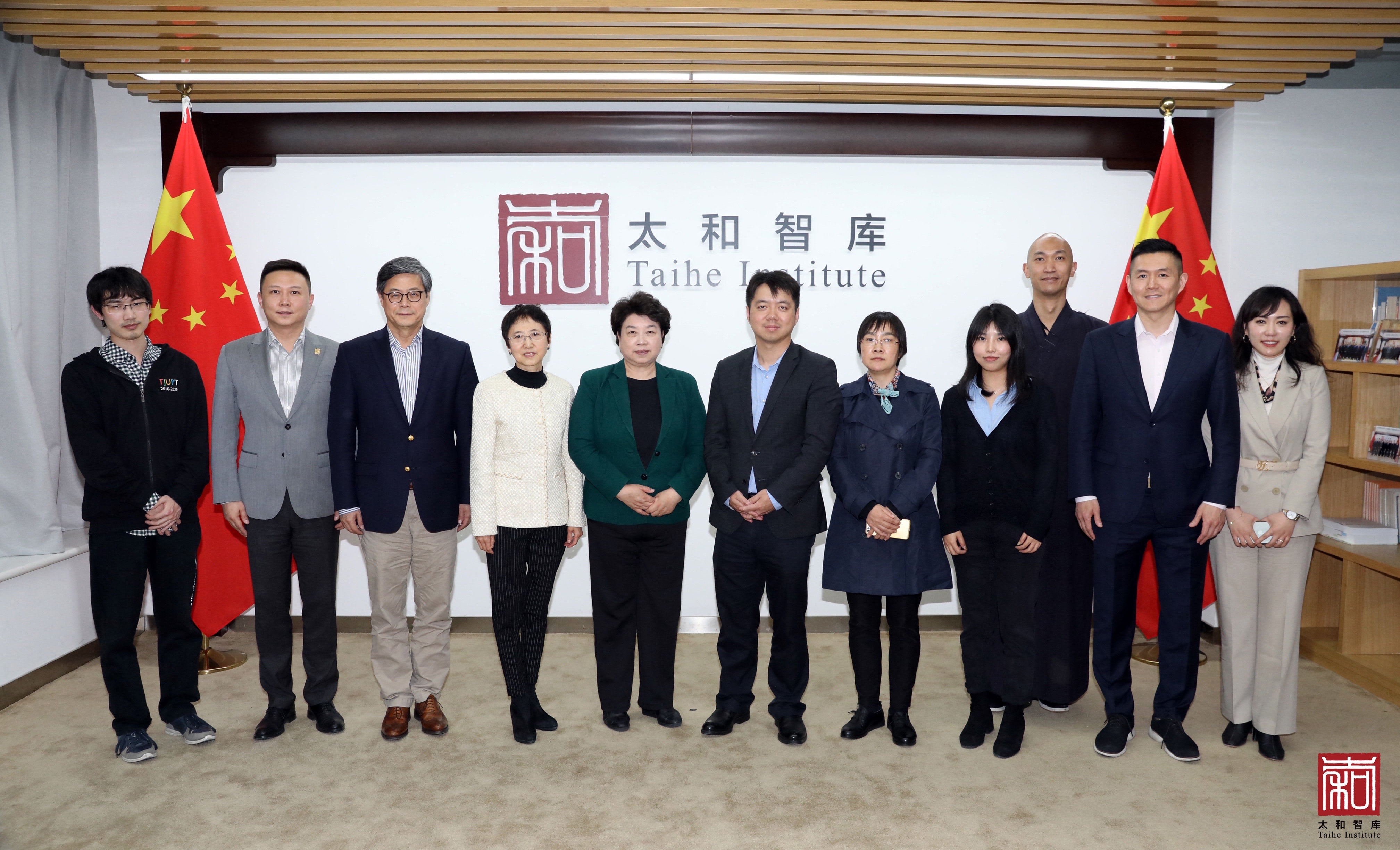Picture
Your Present Location: HOME> PictureRDCY was invited to give a lecture at TaiHe Institute
In the afternoon of April 12th, 2021, Executive Dean Wang Wen of Chongyang Institute for Financial Studies at Renmin University of China (RDCY) was invited to give a lecture at TaiHe Institute(TaiHe), and the two sides had an in-depth discussion on the theme of "Current Situation and Future Trends of China's Think Tank Development". The meeting was hosted by Song Xiaofeng, Secretary General and Editor-in-Chief of TaiHe Institute.

At the conference, Dean Wang Wen introduced the assessment and outlook of China’s think tanks in the post-pandemic era, as well as the "seven-year itch" of think tank development. He said that think tanks have been developing rapidly in the past few years, and under the new situation, the future development should be based on the world and must be global. At the same time, he analyzed the five elements of successful think tanks, namely clear service orientation, excellent executive team, innovative operation mechanism, strong financial strength and appropriate thought products, and analyzed in depth the reasons why think tanks lag behind the times and national needs.
Liu Jinghui, former Secretary-General of the China Scholarship Council and Senior Fellow of TaiHe, affirmed Dean Wang Wen's suggestions on how to build a new type of think tank with Chinese characteristics and said that the development of think tanks depends on the continuous improvement of humanities and social science scholars' awareness. He Yehui, deputy director of the 12th National People's Congress Supervisory and Judicial Affairs Committee and senior fellow of Taihe, pointed out that China’s think tanks need to build open channels for international voices. Ma Yansheng, former Minister-Counselor of the Ministry of Education in China Embassy in France and senior fellow of Taihe, emphasized that new think tanks with Chinese characteristics should properly handle the relationship between civil diplomacy and public diplomacy. Secretary General Song Xiaofeng expressed his expectation to interact closely with RDCY in the future and to play the role of think tanks to jointly make suggestions for China's development. Wang Guan, the anchor of CGTN and fellow of Taihe, suggested that it is necessary to analyze the ecology of public opinion in foreign voices, to achieve the power of leveraging power, and emphasized the significant role of cultural brand in foreign voices.
The symposium adopted a combination of online and offline methods, and some senior fellows of Taihe participated in the online and offline symposium and exchanged views with Dean Wang Wen on relevant topics. Yang Yuntao, Executive Editor-in-Chief of Information Center of RDCY; Liu Jintao, Assistant fellow of RDCY; and Liu Di, Operations Specialist of RDCY, accompanied the exchange session.
Key Words: Think Tank; Taihe; RDCY; China























































































 京公网安备 11010802037854号
京公网安备 11010802037854号





